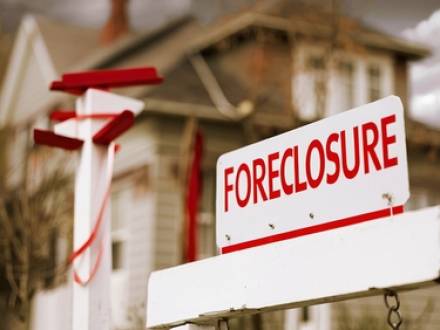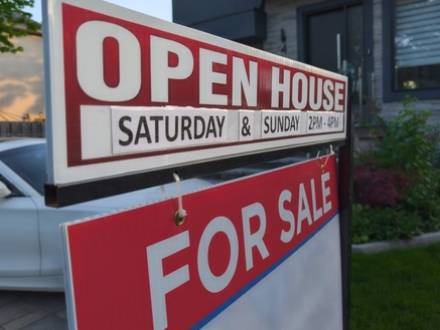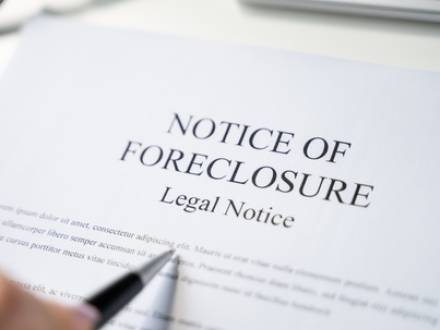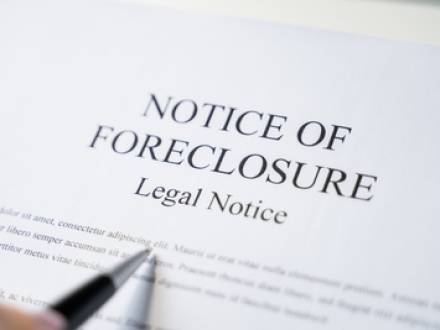1512 Artaius Parkway, Suite 300,
Libertyville, IL 60048
Call for a FREE Phone Consultation
847-549-0000
Video Consultations Also Available
 Spanish
SpanishServing Clients Across 7 Illinois Locations
Recent Blog Posts
Closing Day Disasters: Avoiding Illinois Real Estate Surprises
 Real estate closing day should be a celebration – the final step in buying or selling your Illinois home. Unfortunately, many find this day less than celebratory, as they are forced to engage in a last-minute scramble when unexpected issues arise.
Real estate closing day should be a celebration – the final step in buying or selling your Illinois home. Unfortunately, many find this day less than celebratory, as they are forced to engage in a last-minute scramble when unexpected issues arise.
According to the National Association of REALTORS, approximately 6 percent of contracts are terminated during closing, 14 percent of closings are delayed, and of those delayed, half are due to appraisal issues. Having a problem at closing can ruin your day and possibly even your real estate deal.
From title issues to missing documents, unexpected repair problems, or financing glitches, what can go wrong often does when details are overlooked. When you have an experienced Round Lake, IL real estate lawyer by your side throughout the process, you can avoid unpleasant closing day disasters.
Different Types of Foreclosure Workout Agreements
 Facing home foreclosure can be devastating. For most people, their home is their refuge. Foreclosure makes homeowners less likely to buy another house in subsequent years, they are more likely to default on other debts, and their overall living arrangements become less secure.
Facing home foreclosure can be devastating. For most people, their home is their refuge. Foreclosure makes homeowners less likely to buy another house in subsequent years, they are more likely to default on other debts, and their overall living arrangements become less secure.
Unfortunately, a new study reveals that among the states with the highest rates of home foreclosures, Illinois ranks ninth, with one foreclosure for every 3,753 homes. By comparison, the state of Missouri has a foreclosure rate that is less than half that of Illinois, with one in every 7,112 homeowners facing foreclosure.
There are some solutions to foreclosure, including workout agreements that occur early on in the foreclosure process. The best step you can take if you are facing foreclosure is to speak to an experienced Grayslake, IL foreclosure defense attorney from Newland & Newland, LLP.
What Are Some Real Estate Red Flags When Purchasing a Home?
 Perhaps you have found your dream home. It has everything you want and need, and best of all, the price is amazing. Before you rush into a real estate purchase, remember that looks are often deceiving. Also, consider the old adage that if something seems to be too good to be true, it probably is.
Perhaps you have found your dream home. It has everything you want and need, and best of all, the price is amazing. Before you rush into a real estate purchase, remember that looks are often deceiving. Also, consider the old adage that if something seems to be too good to be true, it probably is.
Some of the biggest issues in homes – those issues that can suck your bank account dry within the first year – are hiding in plain sight. If you are unsure what you should be looking for, your dream home could end up being a lemon. Having a Round Lake, IL real estate attorney looking out for your best interests throughout the purchase can be extremely helpful.
What Are the 5 Things You Should Look Out for When Buying a Home?
You never want to spend the next few years regretting your home purchase. In order to avoid that, there are important issues you should look out for, or at least have someone else look out for on your behalf. Home inspections often reveal some of these issues, but not always. Before you sign on the dotted line, look closely at these issues.
Can You Buy a Home Without Waiting for Interest Rates to Drop?
 If you are planning on buying a home, you may have been closely watching mortgage interest rates to see if they could drop. Right now, the interest rate for a 30-year fixed-rate mortgage is 6.76 percent, and for a 15-year fixed-rate mortgage, it is 5.89 percent. These rates are almost double what we saw during the pandemic years. Current housing market data and financial data show little indication of a coming drop in interest rates.
If you are planning on buying a home, you may have been closely watching mortgage interest rates to see if they could drop. Right now, the interest rate for a 30-year fixed-rate mortgage is 6.76 percent, and for a 15-year fixed-rate mortgage, it is 5.89 percent. These rates are almost double what we saw during the pandemic years. Current housing market data and financial data show little indication of a coming drop in interest rates.
Add to that the fact that tariffs could make building materials considerably more expensive if you consider building a home. With all the uncertainty swirling around us, it could be smart to consider a home-buying strategy that is less about interest rates on your mortgage and more focused on home ownership. If you need assistance in your home-buying quest, you could benefit from speaking to an experienced Waukegan, IL real estate lawyer.
Where Are You in the Foreclosure Process When You Are Served?
 Unfortunately, Illinois foreclosures are on the upswing, with the state now having the ninth-highest home foreclosure rates in the nation. About one out of every 3,753 homeowners in the state now faces foreclosure actions, and there are few signs that these actions will slow down in the coming months.
Unfortunately, Illinois foreclosures are on the upswing, with the state now having the ninth-highest home foreclosure rates in the nation. About one out of every 3,753 homeowners in the state now faces foreclosure actions, and there are few signs that these actions will slow down in the coming months.
If you have been unable to make your monthly mortgage payments due to unforeseen circumstances, you are likely very anxious about whether you will be forced to leave your home. Many people in this situation simply choose not to think about potential foreclosure because it is too frightening. They hold onto hope that "something" will change, allowing them to catch up on their mortgage payments.
How Seasonality Could Affect Buying or Selling a Home
 Seasonality is a normal pattern in the real estate market, causing the volume of sales as well as the pricing trends to peak and dip, depending on the time of year. Seasonality is the result of market dynamics, the overall economy, weather, holidays, and even school schedules.
Seasonality is a normal pattern in the real estate market, causing the volume of sales as well as the pricing trends to peak and dip, depending on the time of year. Seasonality is the result of market dynamics, the overall economy, weather, holidays, and even school schedules.
As a seller or a buyer, you can make more informed decisions when you have a solid understanding of seasonal housing sales trends. If you are a new buyer, it can be extremely beneficial to speak to an experienced Gurnee, IL real estate lawyer before you make any decisions that cannot be undone.
What is the Traditional Seasonal Real Estate Cycle?
Barring exceptional national issues – like a recession – the real estate market follows a fairly predictable cycle. Although the specifics of this cycle can vary somewhat, based on the region, most real estate markets experience the same seasonal cycles, which include:
Can You Be Locked Out of Your Home During Foreclosure?
 In 2024, Illinois ranked fifth for the number of foreclosures, after California, Florida, Texas, and New York. There were 13,082 foreclosure starts in 2024 across the state. A "start" means foreclosure proceedings were legally begun, but they may or may not have ended in actual foreclosure.
In 2024, Illinois ranked fifth for the number of foreclosures, after California, Florida, Texas, and New York. There were 13,082 foreclosure starts in 2024 across the state. A "start" means foreclosure proceedings were legally begun, but they may or may not have ended in actual foreclosure.
Illinois is a judicial foreclosure state, which means lenders must go through the courts to foreclose a property, which requires a judgment of foreclosure from a judge. Homeowners have the right to defend against that foreclosure and have the right to proper notice. If you are facing foreclosure of your home, speaking to a knowledgeable Libertyville, IL foreclosure attorney gives you the best chance of a positive outcome.
Guardianship Planning for Disabled Adults
 If you are the legal guardian of an adult with disabilities, you may worry about what would happen to the ward if you could no longer serve as his guardian. Due to great medical advances in caring for people with conditions like Down Syndrome, children with disabilities are now more likely to outlive their parents than ever before. Even if you are younger than the person you serve as guardian for, there is always a chance that something could happen that would prevent you from continuing to fulfill your guardianship responsibilities. One way to prepare for this possibility is to choose a successor guardian. A successor guardian is someone who is able and willing to become the ward’s guardian should you become unable to continue serving. A Libertyville, IL adult guardianship attorney can help you establish a successor guardianship and facilitate a smooth transition should the successor guardian need to take over.
If you are the legal guardian of an adult with disabilities, you may worry about what would happen to the ward if you could no longer serve as his guardian. Due to great medical advances in caring for people with conditions like Down Syndrome, children with disabilities are now more likely to outlive their parents than ever before. Even if you are younger than the person you serve as guardian for, there is always a chance that something could happen that would prevent you from continuing to fulfill your guardianship responsibilities. One way to prepare for this possibility is to choose a successor guardian. A successor guardian is someone who is able and willing to become the ward’s guardian should you become unable to continue serving. A Libertyville, IL adult guardianship attorney can help you establish a successor guardianship and facilitate a smooth transition should the successor guardian need to take over.
When is it Too Late to Back Out of Buying a House?
 The formal home-buying process begins when the buyer makes a written offer to buy a house. If the seller accepts your offer as it is written and also signs it, it becomes a binding legal contract. You might hear your real estate agent or Libertyville, IL real estate lawyer refer to the house as being "under contract" at this time. This is normally the point where it is too late to back out of a sale without repercussions. However, you may still be able to back out of the purchase if you have a valid reason.
The formal home-buying process begins when the buyer makes a written offer to buy a house. If the seller accepts your offer as it is written and also signs it, it becomes a binding legal contract. You might hear your real estate agent or Libertyville, IL real estate lawyer refer to the house as being "under contract" at this time. This is normally the point where it is too late to back out of a sale without repercussions. However, you may still be able to back out of the purchase if you have a valid reason.
When you make an offer on a home, you are not blindly agreeing to buy the home no matter what. A properly written offer should list contingencies that would allow you to abandon the purchase. If one of those contingencies arises, you have grounds to refuse to follow through with buying the home. This makes things much more fair for buyers who have not yet had a chance to conduct a thorough inspection or have an attorney carry out the necessary legal research on the property.
Is Bankruptcy a Valid Way to Stop Foreclosure of Your Home?
 Illinois is one of the top three states with the highest foreclosure rates, with one in 2,837 housing units in foreclosure as of August 2024. Illinois has a high percentage of underwater mortgages left over from the last housing crisis, plus there are lingering fears about recession and the potential loss of jobs under the new administration.
Illinois is one of the top three states with the highest foreclosure rates, with one in 2,837 housing units in foreclosure as of August 2024. Illinois has a high percentage of underwater mortgages left over from the last housing crisis, plus there are lingering fears about recession and the potential loss of jobs under the new administration.
If you are facing home foreclosure, it can be an extremely difficult time in your life. The thought of you and your family potentially being homeless is a frightening thought, especially if you are behind on your mortgage because of the loss of a job or an illness that has generated huge medical expenses.
While there are many different ways to approach a home foreclosure, the best step you can take is to speak to an experienced Grayslake, IL foreclosure attorney. Your attorney can look at your individual situation and help you determine whether filing for bankruptcy is the best option or whether there are better options available.
 Stop Foreclosure
Stop Foreclosure




















